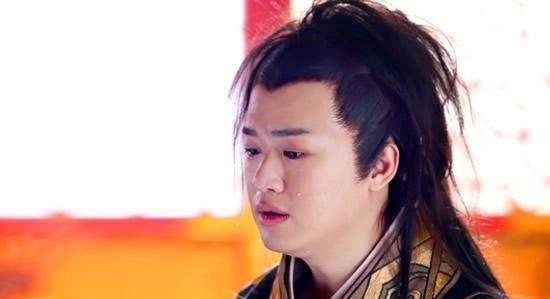Liu He (93 BC or 92 BC – 59 BC), the deposed emperor of the Western Han Dynasty, was the shortest reigning emperor in the history of the Western Han Dynasty, first by the King of Changyi who was inaugurated as emperor, who reigned for only 27 days before he was deposed and sent back to his homeland, and then he was named the Marquis of Haixia but most of the time was under house arrest, so he would not have a title, and posterity could only be called "deposed emperor".

Liu He, the king of Changyi in the TV series
Book of Han. The Xuandi Ji records that "in June, the king received the emperor's seal. 癸巳, Guangquan Wang He fornication, please abolish. Liu He was deposed for "committing adultery" after only 27 days on the throne.
Scholars have always had different views on the credibility of Liu He's account of Liu He's "fornication" in the Book of Han. Some believe that the relevant records in the Book of Han are credible. Some believe that the historians' claims about the sins of king Changyi are not credible. In particular, after the archaeological excavation of the "Tomb of the Marquis of Haixia" in Nanchang, Jiangxi Province, the excavation of Confucian classics such as the "Portrait Screen of Confucius", the "Book of Rites" and "Analects" read before his death, and the performance of Bi Gongbijing written to Emperor Xuan of Han made many people doubt the faint image of Liu He recorded in the Book of Han, believing that it was fabricated by historians. In fact, the book of Han's record of Liu He's image should be basically credible. The so-called Liu He "committed adultery" is actually talking about Liu He's clumsy personality. However, Huo Guang's forces carried out political exaggerations with ulterior motives for these so-called "fornications", and as many as a thousand crimes were inevitably exaggerated, fabricated, and even smeared liu He.
Therefore, Liu He's abdication is not simply "committing adultery", but has a deeper reason. So what is the deep reason for Liu He's abolition?
1. There was a power struggle between Liu He and Huo Guang
After Huo Guang informed Qunchen that the decision to depose the emperor was, "all the courtiers were shocked and lost", if Liu He was really dazed like this, would the Qunchen be mentally prepared? When more than 200 of Changyi's ministers were killed, they "called out to the city: 'When the break continues, it will be disturbed by it.'" I don't know how many times such words have been said in the power struggle in Chinese history, and it is not difficult to judge from it that there was a power struggle between Liu He and Huo Guang at that time.
Huo Guang in film and television dramas
2. Liu He's personal character is the result.
Liu He reigned for only 27 days, but Huo Guang's initial accession to liu he to the throne to the time he deposed Liu He and plotted to depose him did not take place on the twenty-seventh day, but lasted for a period of time. From this point of view, where Liu He was "emperor" for 27 days, which prompted a drastic change in the political situation in this very short period of time, we have no reason to say that this dethronement has nothing to do with Liu He's own personality factors.
Before Liu He succeeded to the throne, when he was still the King of Changyi, his daily behavior could be called a wild personality, less political strategy, juvenile behavior, and many times before and after the ascension to the throne, his subordinates obeyed Huo Guang and did not listen.
3. Forces supporting Emperor Xuan of Han secretly pushed forward
In addition, some scholars believe that Liu He's depose was caused by the political forces that secretly supported Emperor Xuan's succession. There is no doubt that there were public opinions and forces supporting Emperor Xuan's succession at that time for two reasons: First, Emperor Xuan was the son of Prince Huan and the grandson of Emperor Wu, and was one of the few people at that time who had the bloodline and qualifications to succeed to the throne; second, since the "scourge of the witches," there have been remnants of Prince Huan and a public opinion in the government and the public opinion of "redressing and rehabilitating" Prince Huan.